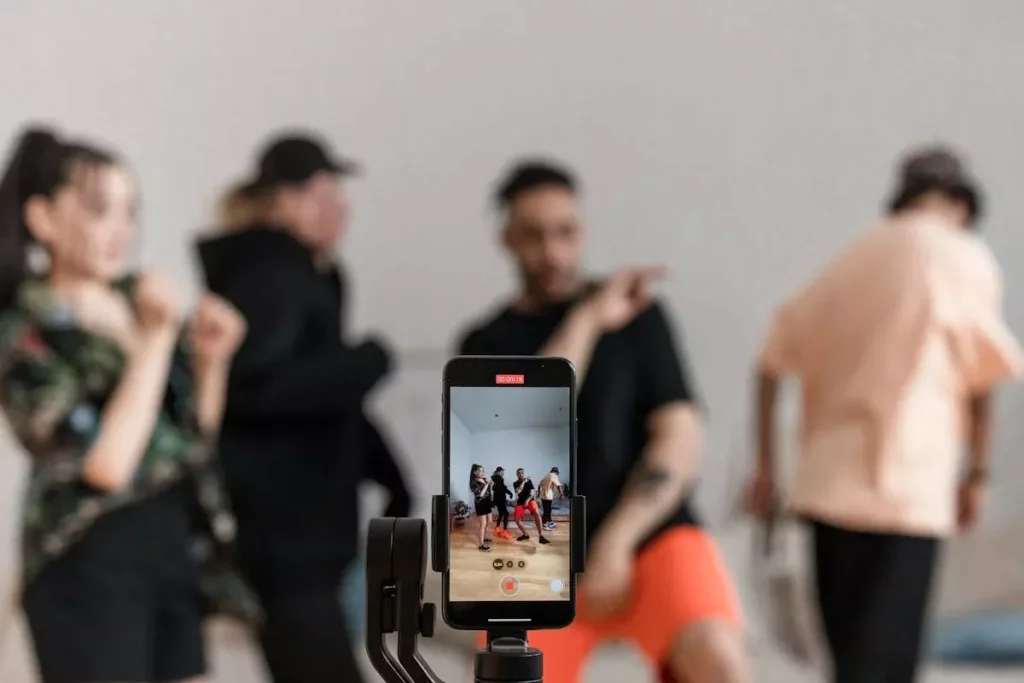In an era where technology evolves at lightning speed, emerging entertainment trends are reshaping the landscape of how we consume media and engage with content. Did you know that nearly 80% of consumers now prefer streaming their favorite shows over traditional cable? This shift underscores a broader transformation taking place across the entertainment industry, driven by advancements in technology, audience preferences, and societal changes. From interactive storytelling that allows viewers to influence plot outcomes to the growing emphasis on diversity and sustainability, the next wave of entertainment is not just about passive consumption—it’s about creating vibrant experiences that resonate on multiple levels. Join us as we explore the key emerging entertainment trends that are set to redefine the way we experience music, movies, and gaming.
Overview of Emerging Entertainment Trends
The landscape of entertainment is constantly evolving, with emerging entertainment trends shaping how audiences consume content and engage with their favorite artists. These trends are influenced by technology, cultural shifts, and changing consumer behaviors. Understanding these trends is essential for industry professionals and consumers alike, as they can impact everything from how content is created to how it is marketed.
Rise of Streaming Services
The explosion of streaming services has transformed the way audiences access and enjoy content. With platforms like Netflix, Amazon Prime, and Disney+, viewers are no longer bound by traditional cable subscriptions.
- Shifts in viewership behaviors: Audiences are leaning towards on-demand content that allows for binge-watching, significantly reducing the time spent watching traditional TV.
- The emergence of niche platforms: Smaller, specialized services are catering to specific interests, offering everything from independent films to exclusive documentaries.
Interactive Entertainment
Another key trend is the move towards interactivity in entertainment. This shift has implications across various mediums, particularly in gaming and immersive experiences.
- Gaming as a social platform: Video games are no longer just solitary experiences. With multiplayer options and social integration, players can connect and interact, making gaming a communal activity.
- The growth of AR and VR experiences: Augmented reality (AR) and virtual reality (VR) technologies are bridging the gap between the digital and physical worlds, creating unique experiences that engage users on a deeper level.
Sustainable Entertainment Practices
As social consciousness rises, so do the expectations concerning sustainability in the entertainment industry. Consumers are increasingly supportive of brands and events that take steps toward eco-friendliness.
- Eco-friendly events and productions: Festivals and productions are adopting sustainable practices, such as reducing waste and carbon footprints.
- The demand for transparency and ethics: Audiences want to know where their entertainment comes from and how it is produced, leading to brands being more accountable and socially responsible.
Diverse and Inclusive Storytelling
Diversity and inclusion have become central themes in entertainment content, reflecting a broader societal demand for representation.
- Representation in media: Films, music, and other artistic expressions are increasingly showcasing diverse voices and stories that resonate with a wider audience.
- The importance of diverse voices in film and music: This shift not only enriches the content but also fosters a deeper connection with audiences worldwide.
For further insights into these evolving dynamics, you can explore resources from reputable sources such as Variety for the latest trends and analyses in entertainment.
By staying informed about these emerging entertainment trends, stakeholders in the industry can better position themselves for success and capitalize on new opportunities that arise in this fast-changing environment.
Short-Form Content Popularity
In recent years, the rise of short-form content has become one of the most notable emerging entertainment trends. With platforms like TikTok and Instagram Reels capturing the attention of millions, this format is transforming the way content is created and consumed.
- The rise of platforms like TikTok: TikTok’s user base has skyrocketed, making it a hotspot for creatives to share bite-sized videos that can quickly go viral. Its algorithm encourages diverse content, allowing users to explore various genres and styles in just a few scrolls.
- Attention spans and content consumption habits: As audiences become accustomed to rapid-fire snippets of entertainment, creators are adapting to meet these expectations. This trend showcases a shift towards concise storytelling that captures viewers’ attention in mere seconds.
Interactive Elements in Short-Form Content
Another exciting aspect of short-form content is the incorporation of interactive features that engage viewers even further. These elements not only enhance the entertainment value but also encourage audience participation.
- Polls and quizzes: Short-form videos often include questions or polls, prompting viewers to interact with the content actively.
- Challenges and trends: Many creators initiate viral challenges that invite audiences to participate, further driving engagement and community building.
The Future of Short-Form Content
With a growing demand for quick entertainment, the future of short-form content looks promising. As it continues to evolve, major platforms are likely to expand their offerings to facilitate even more innovative content creation.
- Monetization opportunities: As more creators migrate to short-form content, potential monetization strategies are emerging, offering brands and influencers new avenues for revenue generation.
- Integration with traditional content: Expect to see a blending of short-form clips with longer, traditional content, as audiences seek ways to engage with their favorite franchises on multiple levels.
For insights on how short-form content is impacting advertising and marketing strategies, consider visiting Forbes, where industry experts discuss the implications of these emerging entertainment trends.
By understanding the increasing popularity of short-form content, content creators and marketers can adapt their strategies to stay ahead of the curve in this dynamic landscape.
Celebrity and Influencer Collaborations
As social media continues to dominate our daily lives, the way celebrities and influencers connect with audiences has shifted dramatically. Collaborations between brands and well-known personalities are emerging as a key trend in entertainment.
- The impact on brand engagement: Brands partnering with celebrities or influencers can help them reach wider audiences. This strategy creates an authentic connection between consumers and the products being promoted.
- Changing dynamics in celebrity culture: With the rise of social media, influencers, who often relate more closely to everyday consumers, have become key players in the entertainment landscape. Their genuine interactions can drive significant engagement and loyalty among followers.
Benefits of Celebrity Collaborations
The collaboration between brands and celebrities offers numerous advantages that cater to both parties and their audiences.
- Expanded reach: Leveraging a celebrity’s or influencer’s existing fanbase can amplify marketing efforts, resulting in increased visibility and sales.
- Enhanced authenticity: When celebrities genuinely endorse a product, it adds trustworthiness. Audiences are more likely to consider purchasing items that are recommended by someone they admire.
- Innovative content creation: Collaborations often lead to creative ideas and innovative formats, from unique video campaigns to interactive social media challenges, engaging audiences in fresh and exciting ways.
The Role of Social Media Platforms
Social media platforms play a crucial role in supporting these collaborations and shaping emerging entertainment trends.
- Instantaneous feedback: Brands can quickly gauge audience reactions to celebrity endorsements, allowing for quick adjustments in strategy when necessary.
- Content virality: The shareability of content helps collaborations reach a broader audience, increasing the chances of a campaign going viral.
For more insights into the impact of celebrity and influencer collaborations on the entertainment industry, check out Ad Age, where you can find articles that explore the intersection of marketing and entertainment.
Understanding how these emerging entertainment trends are evolving can help brands and creators develop strategies that resonate with their target audiences, ultimately driving engagement and success in a competitive marketplace.
Virtual Events and Experiences
The COVID-19 pandemic accelerated the adoption of virtual events, which have now become one of the most significant emerging entertainment trends. Virtual events offer a new way for audiences to engage with content, artists, and each other, creating unique experiences that transcend geographical barriers.
- Adaptation in the wake of global events: With physical gatherings restricted, many organizers turned to online formats, leading to a surge in virtual concerts, festivals, and conventions. This shift demonstrated that audiences can still enjoy immersive experiences from the comfort of their homes.
- Advantages of virtual formats: Virtual events provide numerous benefits, including:
- Accessibility: People from around the world can participate in events they might not attend in person due to distance or cost.
- Cost-efficiency: Organizers can reduce expenses related to venues, staffing, and logistics, allowing more budget to be allocated to production quality.
- Increased reach: Brands can draw larger audiences, maximizing exposure and engagement opportunities.
Innovative Elements in Virtual Experiences
In response to the growing popularity of virtual events, organizers are integrating innovative aspects to enhance viewer engagement.
- Interactive features: Many platforms offer real-time chat, Q&A sessions, and polls that allow attendees to interact with performers and each other, creating a sense of community.
- Mixed-reality environments: Some events are combining live performances with augmented reality (AR) and virtual reality (VR) elements, providing audiences a more immersive experience.
The Future of Virtual Events
As we look to the future, virtual events are likely to remain a staple in the entertainment landscape, evolving with advancements in technology.
- Hybrid events: The combination of in-person and virtual experiences is becoming more common, allowing attendees to choose how they participate while expanding audience reach.
- Enhanced production value: Expect to see higher-quality streaming, integrating spectacular visuals and soundscapes, making virtual experiences even more compelling.
For more information on the evolution and effectiveness of virtual events, consider checking out Eventbrite, which provides resources for event organizers navigating this shifting landscape.
Embracing these emerging entertainment trends not only reflects changing consumer preferences but also opens new avenues for creators and brands to engage with their audiences more effectively.
The Future of Live Entertainment
Despite the rise of virtual events, live entertainment is set to reclaim its prominence as an integral part of the entertainment landscape. Emerging entertainment trends indicate that live events will adapt through innovation and enhanced audience experiences, catering to evolving consumer preferences.
- Blending virtual and in-person experiences: Hybrid events are becoming increasingly popular, allowing attendees to choose between participating physically or virtually. This flexibility enhances accessibility while still offering the excitement of live performances.
- Innovations in audience engagement: Event organizers are employing new technologies to engage live audiences better, such as:
- Mobile apps: Customized apps allow for interactive event schedules and real-time updates, giving attendees a more personalized experience.
- Enhanced fan interactions: Pre-event meet-and-greets and backstage tours (even if virtual) foster greater audience connections with artists.
The Role of Technology
Technology plays a pivotal role in shaping the future of live entertainment, facilitating unique experiences that deepen audience involvement.
- Use of augmented reality (AR): Live events are incorporating AR features that allow fans to experience the show in novel ways, from interactive set designs to exclusive content available through their devices.
- Wearable tech: Smart wristbands and other wearable devices can enhance the live experience, offering real-time data on audience engagement and preferences to event organizers.
Sustainability Considerations
As sustainability becomes a focal point of many emerging entertainment trends, live events are not left behind. Organizers are increasingly prioritizing eco-friendly practices, such as:
- Reducing waste: Implementing recycling programs and minimizing single-use plastics during events can significantly lessen the environmental impact.
- Carbon offset programs: Many live events are now contributing to carbon offset programs, helping to mitigate their ecological footprint.
For further insights into the future of live entertainment, consider exploring Live Nation, a leading global entertainment company that showcases developments within the live events sector.
By embracing these emerging entertainment trends, both organizers and artists can transform the live event experience, creating engaging and sustainable environments that resonate with audiences worldwide.
Diverse and Inclusive Storytelling
As audiences increasingly demand representation across various media, diversity and inclusion have emerged as vital themes in entertainment storytelling. This shift reflects broader societal changes and is one of the most significant emerging entertainment trends of our time.
- Representation in media: Films, television shows, and music are now more likely to feature diverse casts and narratives that reflect a range of cultures, backgrounds, and perspectives. This inclusivity resonates deeply with audiences, making them feel seen and valued.
- The importance of diverse voices: Emerging artists and storytellers from underrepresented backgrounds are gaining recognition, which enhances the richness of content. Some key benefits include:
- Broader narrative exploration: Diverse storytelling allows for the exploration of themes and experiences that may have been overlooked in mainstream media.
- Audience connection: Stories that authentically represent various cultures foster a stronger connection with individuals who identify with those experiences, boosting viewer loyalty.
Impact of Social Media on Diversity
Social media platforms play a crucial role in promoting diverse voices and stories within the entertainment industry.
- Amplifying underrepresented artists: Platforms like Instagram, TikTok, and YouTube have become essential tools for emerging artists to showcase their work, share their stories, and find audiences that resonate with them.
- Creating demand for diversity: Audiences actively voice their preferences for diverse content, compelling producers and studios to prioritize inclusive storytelling. The conversations sparked on these platforms influence what gets made and distributed.
The Future of Storytelling
As we look ahead, the trend towards diverse and inclusive storytelling is likely to continue evolving:
- Harnessing technology: Innovations in technology, such as virtual reality and interactive storytelling, can further enable diverse narratives, allowing audiences to engage in different ways.
- Increased collaboration: Expect to see more partnerships between studios and organizations dedicated to promoting diversity, which can lead to richer, more engaging content.
For insights into how diversity and inclusion are reshaping the entertainment landscape, check out Hollywood Reporter, where you can find articles on the latest industry trends and discussions.
By embracing these emerging entertainment trends, creators and audiences alike can contribute to a more inclusive and vibrant storytelling environment.
Sustainable Entertainment Practices
As the global focus shifts towards sustainability, the entertainment industry is not exempt from this imperative. Emerging entertainment trends indicate a growing commitment among producers, artists, and audiences to prioritize eco-friendly practices in various aspects of entertainment.
- Eco-friendly events and productions: Many festivals and productions are implementing strategies to minimize their carbon footprint. Key practices include:
- Sustainable venues: Choosing locations that prioritize green building practices and energy efficiency.
- Paperless ticketing: Using digital ticketing to reduce waste associated with traditional paper tickets.
- Waste management: Coordinating recycling and composting initiatives during events to limit landfill contributions.
- The demand for transparency and ethics: Today’s audiences are increasingly aware of the environmental impact of their choices. They seek organizations that demonstrate a commitment to sustainable practices. As a result, transparency in production processes has become essential.
Benefits of Sustainability in Entertainment
Incorporating sustainable practices into the entertainment industry comes with numerous advantages:
- Positive brand image: Companies that adopt sustainable practices can enhance their brand reputation, appealing to environmentally conscious consumers.
- Attracting talent: Talented artists and creators often prefer to work for companies committed to sustainability, leading to more innovative and responsible projects.
- Cost savings: Over time, implementing energy-efficient practices can lead to significant cost reductions in production and operational expenses.
Innovative Approaches to Sustainability
The entertainment sector is witnessing inventive approaches that further integrate sustainability into production.
- Green technology: Innovative technologies, such as solar energy and energy-efficient lighting, are becoming commonplace in film and music production.
- Virtual collaborations: Remote collaborations and digital productions can minimize travel emissions, thereby reducing the overall environmental impact of projects.
For deeper insights into how sustainability is shaping the entertainment industry, you can visit National Geographic, which features articles on environmental initiatives across various sectors.
As these emerging entertainment trends continue to evolve, a strong commitment to sustainability will not only benefit the environment but also enhance the overall viewing experience for conscientious consumers.
Rise of Streaming Services
The rise of streaming services has fundamentally transformed how audiences consume entertainment, marking a significant trend within the realm of emerging entertainment trends. With an explosion of platforms offering a variety of content, the landscape has shifted dramatically.
- Shifts in viewership behaviors: Viewers are increasingly abandoning traditional cable subscriptions in favor of streaming services, driven by the desire for on-demand content. This shift has influenced audience scheduling preferences, with many choosing to binge-watch entire seasons of shows at once rather than waiting for weekly episodes.
- The emergence of niche platforms: As larger services like Netflix and Amazon Prime dominate, niche streaming services are carving out their identities by catering to specific genres or interests. This segmentation allows audiences to find content that aligns closely with their tastes, leading to renewed loyalty.
Key Features of Streaming Success
The success of streaming services can be attributed to several essential features:
- User-friendly interfaces: Most streaming platforms offer intuitive navigation and personalized content recommendations, enhancing user experience and engagement.
- Original content production: Many streaming services invest heavily in creating original programming, drawing subscribers eager for unique and exclusive series or films. This strategy not only attracts new viewers but also retains existing ones.
- Accessibility across devices: Streaming services can be accessed on various devices—smartphones, tablets, smart TVs, and computers—allowing viewers to watch their favorite content anytime, anywhere.
The Future of Streaming Services
As technology continues to evolve, the streaming industry is likely to see several exciting developments:
- Increased interactivity: Future streaming experiences may include interactive content, allowing audiences to make choices that influence story outcomes, akin to the success of projects like “Black Mirror: Bandersnatch.”
- Global expansion: Streaming services are reaching audiences worldwide, introducing content from different cultures and countries, thus diversifying the viewing experience.
For further insights into the ongoing evolution of streaming services and their impact on the entertainment industry, you can explore Variety, a trusted source for entertainment news and analysis.
By understanding these emerging entertainment trends in streaming, stakeholders can better navigate the industry and cater to the evolving preferences of modern viewers.
Interactive Entertainment
Interactive entertainment has emerged as one of the most compelling and innovative trends in the industry, transforming traditional forms of media into engaging experiences that captivate audiences. This shift signifies a move away from passive viewing, allowing users to become active participants in content.
- Gaming as a social platform: Video games are no longer just solitary activities; they have evolved into vibrant social environments. Players can communicate, collaborate, and compete with one another, fostering connections that extend beyond the game itself.
- The integration of augmented and virtual reality: Technologies such as AR and VR are revolutionizing how audiences engage with entertainment. From immersive gaming experiences to interactive exhibits in museums, these technologies offer new avenues for exploring narratives.
Key Examples of Interactive Entertainment
Several successful examples illustrate the rise of interactive entertainment:
- Role-playing games (RPGs): Games like “Dungeons & Dragons” and titles in the “Mass Effect” series have created rich narrative experiences where players’ choices directly impact outcomes, deepening the immersion.
- Choose-your-own-adventure formats: Platforms like Netflix have experimented with interactive storytelling, as seen in “Black Mirror: Bandersnatch,” allowing viewers to make choices that shape the storyline.
Benefits of Interactive Entertainment
The integration of interactivity into entertainment presents numerous advantages, including:
- Enhanced user engagement: By giving audiences a stake in the outcome, interactive content fosters deeper emotional connections and investment in the characters and storylines.
- Diverse content exploration: Interactive experiences allow for multiple narrative pathways, encouraging audiences to revisit content and discover new angles and outcomes.
The Future of Interactive Entertainment
As technology evolves, the potential for interactive entertainment continues to expand:
- Emerging technologies: Advancements in AI and machine learning may allow for even more personalized experiences, tailoring narratives to individual user preferences.
- Broader applications: Beyond gaming and digital media, interactive elements may emerge in education, training, and marketing, offering users a chance to engage in dynamic ways.
For more insights into trends in interactive entertainment, you can visit Epic Games, where industry leaders discuss developments, technologies, and the future of gaming.
By embracing these emerging entertainment trends, creators and brands can deliver engaging and immersive experiences that resonate with audiences in an increasingly interactive world.
Conclusion: Preparing for the Future of Entertainment
As we have explored, emerging entertainment trends demonstrate a significant shift in how audiences engage with content. From the rise of streaming services and the integration of interactive elements to the push for diversity and sustainability, the future of entertainment promises to be dynamic and multifaceted.
- The continuous evolution of trends: The entertainment landscape is in constant flux, influenced by technological advancements, societal changes, and consumer preferences. As new trends emerge, stakeholders must remain adaptable and innovative.
- How to stay ahead in the industry: To navigate these changing waters successfully, creators, marketers, and brands should consider the following:
- Embrace technology: Stay informed about the latest technologies, such as AR, VR, and AI, and how they can be incorporated into content creation and distribution.
- Prioritize audience engagement: Use interactive elements to create meaningful connections with audiences, ensuring they feel valued and involved in the experience.
- Commit to diversity and sustainability: Foster inclusivity in storytelling and production practices, demonstrating a commitment to ethical and eco-friendly principles that resonate with modern consumers.
By understanding and adapting to these emerging entertainment trends, industry professionals can better position themselves for success, creating engaging content that appeals to diverse audiences while also meeting their evolving needs.
For a deeper dive into the future landscape of entertainment, consider exploring insights from McKinsey & Company, where you can find comprehensive research and analysis on industry trends and consumer behavior.
Engaging with these trends will not only enrich the entertainment experience but also pave the way for a more innovative and inclusive future in the industry.
What are emerging entertainment trends?
Emerging entertainment trends refer to new and evolving patterns in how content is created, consumed, and engaged with by audiences. These trends can encompass technological innovations, changes in viewer behavior, and shifts in industry practices that redefine the entertainment landscape.
How are streaming services impacting traditional media?
Streaming services are significantly impacting traditional media by providing on-demand content that caters to audience preferences for convenience. This shift has led to a decline in cable subscriptions as viewers increasingly choose streaming platforms that offer flexibility, curated content, and the ability to binge-watch entire series.
What role does technology play in interactive entertainment?
Technology plays a crucial role in interactive entertainment by enabling experiences that allow audiences to participate actively in narratives, rather than just passively viewing them. Innovations such as virtual reality, augmented reality, and gaming interfaces allow users to influence story outcomes and engage with content on a personal level.
Why is diversity important in entertainment?
Diversity in entertainment is essential because it enriches storytelling and reflects the varied experiences of different cultures and communities. Audiences are increasingly seeking content that represents multiple perspectives, which fosters empathy and connection while also driving viewer loyalty to brands and creators committed to inclusivity.

How can creators stay ahead of emerging entertainment trends?
Creators can stay ahead of emerging entertainment trends by actively researching new technologies, monitoring audience preferences, and embracing innovative storytelling techniques. Collaborating with diverse voices and incorporating sustainable practices can also enhance their projects and resonate more deeply with modern audiences.
For more strategies on creating unforgettable experiences in the entertainment industry, check out The Ultimate Event Organizers Guide: Strategies for Creating Memorable Experiences.





